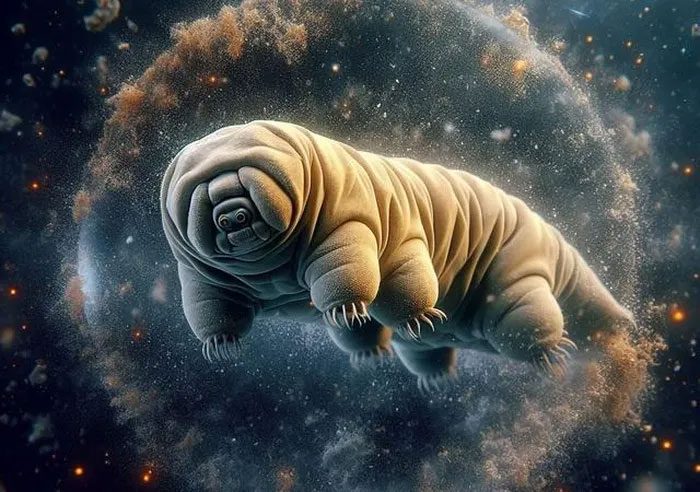In experiments conducted in the United States, human cells have achieved a “immortal” capability similar to that of Tardigrades when proteins from this organism were introduced.
According to Science Alert, the experiments led by a research team from the University of Wyoming (USA) could pave the way for a range of groundbreaking medical applications, saving many lives and bringing us closer to the dream of “immortality,” thanks to one of the factors that contribute to the immortality of tardigrades.

Immortal tardigrade in hot water, freezing conditions, drought, and environments on other planets or the space between stars – (Graphic image).
Tardigrades, also known as water bears, are truly unique organisms.
Small yet seemingly indestructible, some tardigrades can survive in nearly boiling water, in the depths of icy soil, and can revive and reproduce after being desiccated for decades in the Atacama Desert of Chile…
There are even speculations that they have hitchhiked on spacecraft and could currently be the dominant species on the Moon.
The bodies of tardigrades are filled with elements that help them achieve immortality. However, the American research team focused on a special protein called CAHS D, known for its ability to enable survival even after the organism has been dried out for years.
When this protein was introduced into human cells in the laboratory, it helped the cells slow down biological processes, thereby resisting stress caused by extreme conditions and even the natural aging process.
“Our findings open a pathway to pursue technologies aimed at creating biological balance within cells and even entire organisms to slow down the aging process, enhance storage capacity, and stability,” the authors stated.
Additionally, it could be applied in treatment methods where cells need to be preserved safely, slowing the natural degradation process when essential conditions for normal operation are lacking, such as during organ transplantation surgeries.
Moreover, scientists are also investigating whether this “immortal” protein can stabilize important blood products used to treat genetic diseases.
Further in-depth research will be needed to translate this initial breakthrough into widely applicable medical solutions.


















































